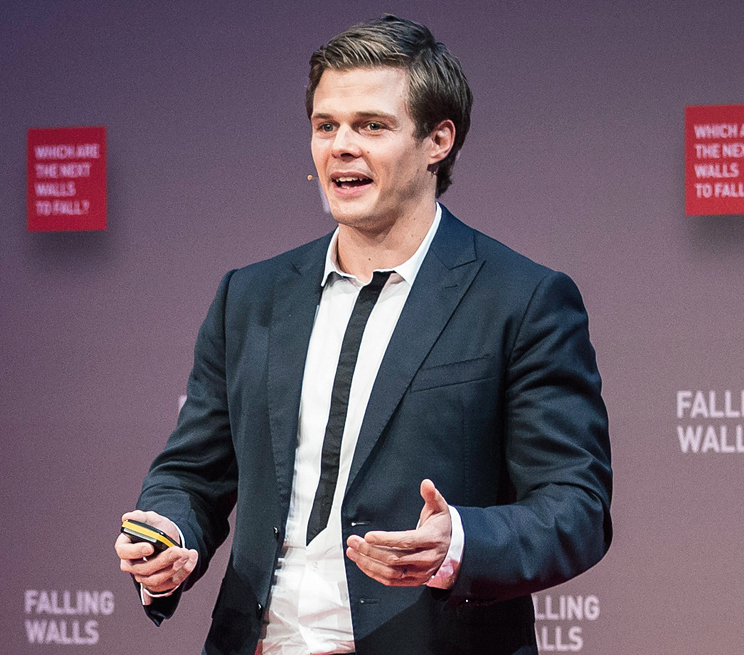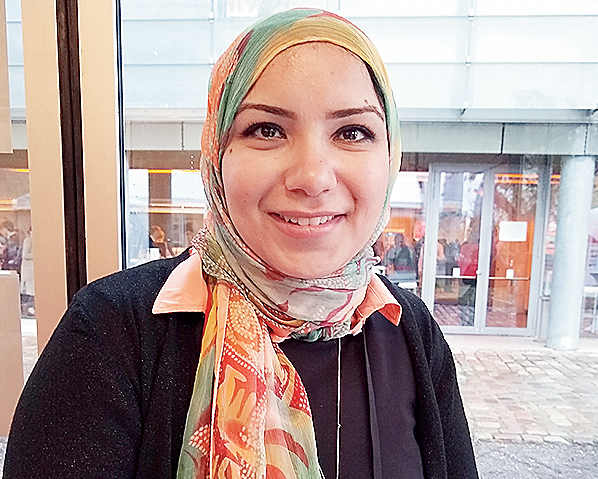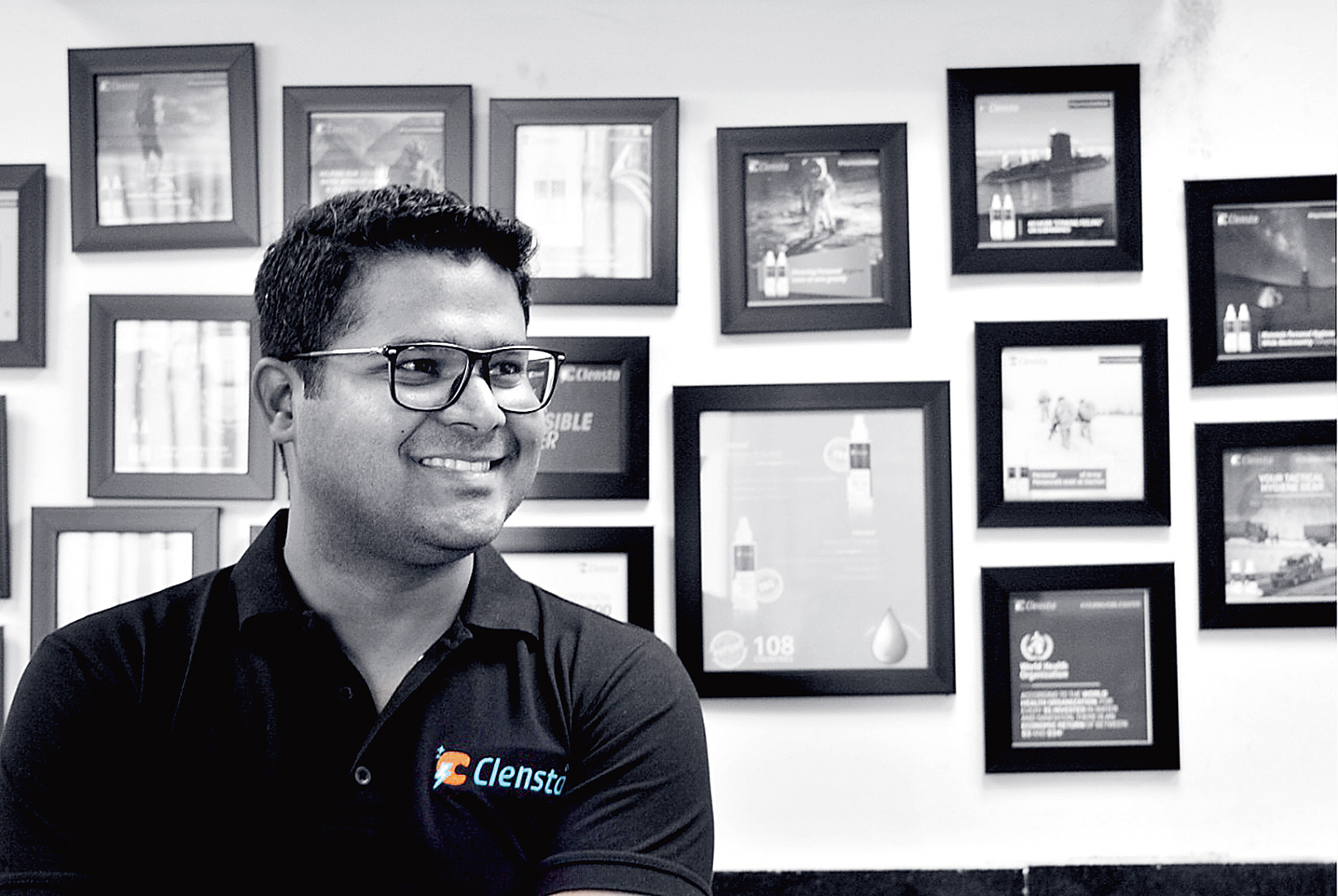Bacteria to fight cancer, wonder liquid for a waterless bath, a machine to sense freshness of food, a glove to stabilise trembling hands. Wonder what is common to these random things? They are a sampling of the 23 fascinating ideas and technologies presented recently in Berlin, Germany, by participants of Falling Walls Venture, a global competition for science-based start-ups that is in its 10th year.
The ventures that were showcased are each supposed to have broken the walls of convention or a stalemate, and crossed boundaries in their field of research. Every participant had five minutes to present his or her start-up before the audience and a jury comprising scientists, technologists, investment managers and academicians from across the world. Start-ups from Japan, Russia, Egypt, Canada, Germany, Israel and India, among other countries, gave tough competition to Swiss venture T3 Pharmaceuticals, which won the Start-Up of the Year 2018 title for their innovative treatment of cancer using bacteria.
“To break the wall [of conventional therapy], we used engineered bacteria to provide an alternative solution to the problem of cancer,” said Simon Ittig, CEO and co-founder of T3 Pharmaceuticals, a spin-off of the University of Basel, Switzerland, while presenting the work. T3’s engineered bacteria stimulate the immune system by delivering selected human proteins directly into the tumour. Pre-clinical studies in different types of tumours demonstrated that this reduces the tumour as well as increases the body’s ability to fight recurring tumours. “We have tried out 200 different proteins and have proved this model in several animals. Vaccination wakes up the immune system, which then fights the tumour. If treated locally, you will get long-lasting and systemic impact,” Ittig added. Clinical trials for the process are scheduled for the first half of 2020.
Of the two start-ups from India, Clensta — associated with Indian Institute of Technology, Delhi — has developed a sanitiser fluid that makes the advantages of a bath available “for anyone, anytime and anywhere” while Videoken — nominated by International Institute of Information Technology, Bangalore — uses artificial intelligence (AI) and machine learning to “automatically index millions of videos available on the Internet”, which is extremely useful for learners who need to listen to a specific spot in a long video.
Water scarcity is a major “wall” or challenge across the world, which stops people from having regular showers to maintain personal hygiene. The body bath and shampoo innovated by Clensta does not have to be washed off with water, making it easy for people living in areas with water shortage to maintain personal hygiene. “This is not a simple sanitiser but a bathing solution,” said Martijn Brouns, digital marketing officer of Clensta International, during his presentation. “You take 20ml of the solution, spread it over your body, get the germs and dirt together and just wipe it all off,” he explains. This disinfectant kills 90 per cent germs. And, unlike alcohol-based dry shampoos which you can use just once or twice, the Clensta products can be used every day. “Our product is being used by hospitals, defence services, travellers and homes,” says Puneet Gupta, founder and CEO of Clensta.
A major drawback of modern medicine is its one-size-fits-all approach to treatment. All patients diagnosed with the same disease are prescribed the same treatment, no matter how each individual reacts to it. This is especially true of the chemotherapy used to treat cancer — some patients recover quickly and completely while others get no advantage from it.

Simon Ittig The Telegraph file picture

Hoda Yousry The Telegraph file picture
Hoda Yousry, a postdoctoral researcher in medical genetics, built a software that can predict the course of a disease and the best treatment for it if all relevant information is fed into it. Says the CEO and co-founder of start-up Med Predict, “The software can use the inputs of every patient (history, examination, genomic testing, pathology reports and radiology images) to predict the best recommended treatment, best follow-up plan, calculate recurrence risk and survival rate, and estimate disease risk for family members.” Med Predict’s more precise treatment helps improve quality of life, cuts unnecessary investigations and reduces treatment complications.
Indian start-up Videoken, too, is using AI, machine learning and data analytics in its innovation. The Bangalore-based company believes that the millions of informational videos on the
Internet can revolutionise education, if they are properly utilised. In his presentation, Manish Gupta, CEO of Videoken, said, “We use AI techniques to automatically index videos, creating a table of contents and summaries of key topics based on specific phrases or terms [in the audio].” This technique makes long videos easy to navigate and learning more accessible.
Just like the ones mentioned above, all the other start-ups too showcased how scientists across the world are translating basic research into useful applications. Like Stefan von Holtzbrink, chairman of the Falling Walls Venture jury, said, “The competition reassures that scientists are not just busy chasing rats [in laboratories], but are really out to change the world. They are indeed trying to improve lives with dedication and passion.”











